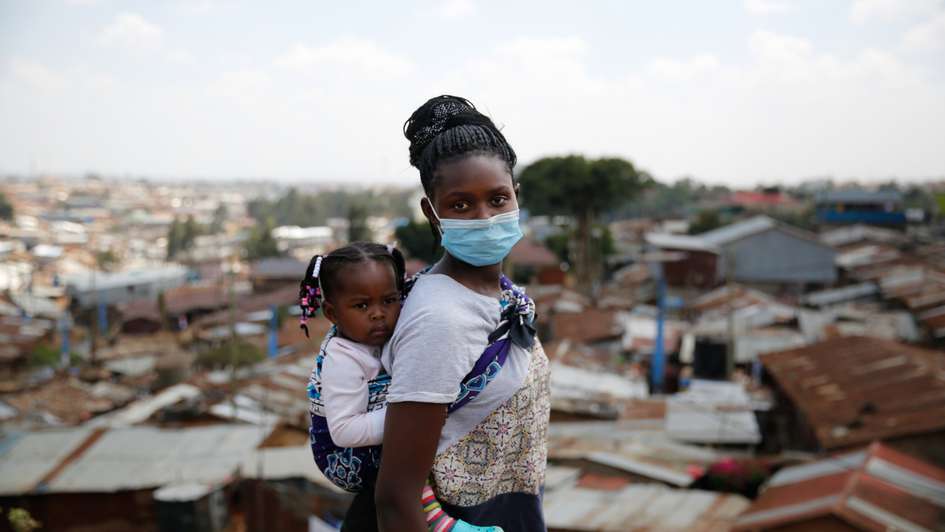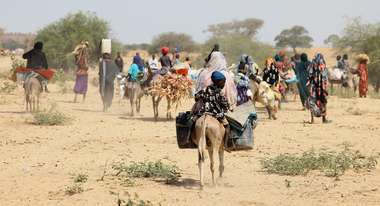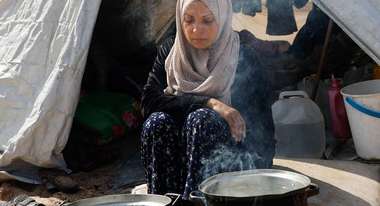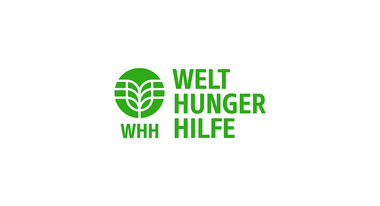Wars, climate change, and the coronavirus lead to bitter setbacks in the fight against hunger
Welthungerhilfe Presents its 2020 Annual Report: Famines are on the increase.

Bonn/Berlin, 2021-06-30. At its annual press conference, Welthungerhilfe is concerned to observe that famines have returned in crisis areas. According to current UN figures, 41 million people around the world are living on the edge of famine, and risk starvation if they do not get swift survival aid. Armed conflicts, such as those in the crisis region of Tigray in northern Ethiopia, and droughts lasting years, such as the drought in southern Madagascar, have devastating consequences especially for the poorest families.
“In many of our project countries, the pandemic has dramatically worsened conditions for people. The coronavirus has mutated into a virus of hunger, and women and children in particular are suffering most as a result. Girls are being married off young, and many children are not going back to school because they have to earn money. Climate change poses an existential threat to families in Africa. In Madagascar there have been droughts, and in East Africa massive floods have destroyed farmland and herds of cattle, and with them the livelihoods of smallholders. People have no reserves left”, warns Marlehn Thieme, Chair of the Board of Welthungerhilfe.
But the review of the last year also shows how much could be achieved, despite all the difficulties. The German public showed an extremely high level of solidarity and willingness to help in 2020. Welthungerhilfe received one of the highest amounts of donations in its history and was able to support more than 14 million people. “Private donations are an important stimulus for us to press on with the fight against hunger and poverty. Current reports from the countries where we work are alarming. Food prices are rising steeply, economic development has been set back years because of the lockdowns and interruptions in trade routes, and many families have run up serious debt. In many countries, people are battling the effects of several overlapping crises, and hunger is increasingly being used as a weapon in war zones”, stresses Mathias Mogge, Secretary General of Welthungerhilfe.
In 2020 Welthungerhilfe had 285.4 million euros to spend on the fight against hunger and poverty. 69.6 million euros came from private donations received. Public donors provided 213.2 million euros for project work. The proportion coming from the German Federal Government was almost 50 percent, the largest individual donor being the Federal Ministry for Economic Cooperation and Development (BMZ), which provided 43.8 million euros. South Sudan, Sudan, and Syria/Turkey received the largest amount of project support, like last year.
Figures, facts, photos and graphics are available in the digital press kit (German only).
Welthungerhilfe is one of the largest private aid organisations in Germany; politically independent and non-denominational. It is fighting for “Zero Hunger by 2030”. Since it was founded in 1962, more than 10,369 overseas projects in 70 countries have been supported with 4.2 billion euros. Welthungerhilfe works on the principle of empowering people to help themselves: from fast disaster relief to reconstruction and long-term development cooperation projects with national and international partner organisations.







